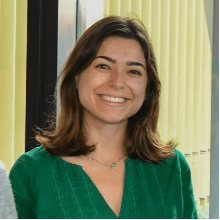Food Retail
The primary goals of the food retail module are:
1) Assessing the marketing mix [price, product, promotion and placement] of healthy and unhealthy foods and non-alcoholic beverages within all different types of retail outlets;
2) Assessing the spatial distribution of retail all different types of retail outlets in communities.
Retail food environments are increasingly considered influential in determining dietary behaviours and health outcomes. INFORMAS propose a step-wise framework to monitor and benchmark community and consumer retail food environments that can be used to assess:
1. Density and relative proportion of healthier and less healthy food outlets
2. Measure proximity of healthier and less healthy food outlets to homes/schools/government-owned entities such as hospitals, sport centres and transit-ways.
3. Evaluate the marketing mix for healthier and less healthy foods and non-alcoholic beverages in-store or at point of purchase
4. Compare retail food environments over time and between regions and countries
5. Identify relevant local policy targets and best practices examples related to retail food environments, and ensure retail food environment monitoring addresses relevant local policies
 Adrian Cameron (Coordinator)
Adrian Cameron (Coordinator)
Associate Professor
Deakin University, Australia
Email: Adrian Cameron

Cliona Ni Mhurchu
Professor of Nutrition Research at the National Institute for Health Innovation,
The University of Auckland, New Zealand
Email: Professor Cliona Ni Mhurchu
 Salome Rebello
Salome Rebello
Senior Lecturer, Saw Swee Hock School of Public Health
National University of Singapore
Email: Salome Rebello
 Julie Brimblecombe
Julie Brimblecombe
Associate Professor, Nutrition Dietetics & Food
Monash University, Australia
Email: Julie Brimblecombe
 Neha Khandpur
Neha Khandpur
Senior Research Fellow, Wageningen University
Other affiliations: University of São Paulo; Harvard TH Chan School of Public Health
Email: Neha Khandpur
 Christiam Mendez
Christiam Mendez
Professor,
Universidad de Lima, Peru
Email: Christiam Mendez Lazarte
 Tailane Scapin
Tailane Scapin
Research Fellow
Deakin University, Australia
Email: Tailane Scapin
 Mariel White
Mariel White
Research Fellow
Instituto Nacional de Salud Pública, Mexico
Email: Mariel White
 Clara Gomez-Donoso
Clara Gomez-Donoso
Research Fellow
Deakin University, Australia
Email: Clara Gomez-Donoso
van Burgel, E., Fairweather, M., Hill, A., Christian M, FergusonM, Lee A, Funston S, Fredericks B, McMahon E, Pollard C, Brimbelcombe J, Development of a survey tool to assess the environmental determinants of health-enabling food retail practice in Aboriginal and Torres Strait Islander communities of remote Australia. BMC Public Health 24, 442 (2024). https://doi.org/10.1186/s12889-024-17945-9 (This includes food pricing component).
Monitoring the availability of healthy and unhealthy foods and non-alcoholic beverages in community and consumer retail food environments globally (pages 108–119) C. Ni Mhurchu, S. Vandevijvere, W. Waterlander, L. E. Thornton, B. Kelly, A. J. Cameron, W. Snowdon, B. Swinburn and INFORMAS
Read the INFORMAS paper online here
Additional Publications
Below are the INFORMAS protocols to download. Some protocols are still under development – contact us if you would like more information. Please read the terms and conditions regarding the use of the protocols. You must complete this agreement and return it to us if you are using and/or adapting the protocol. You may then use, modify and reproduce the protocol, but the work that results from using the INFORMAS resources remains available to the INFORMAS group and falls under the same ‘copyleft’ principles as the original protocol (i.e., you can’t claim copyright on protocols you develop based on INFORMAS resources). You don’t have to share the whole work that results from using the INFORMAS resources, but are expected to share:
- Any modifications or updates you make to the protocol (e.g., updates for your own country)
- The final (cleaned) data as collected using the protocol.